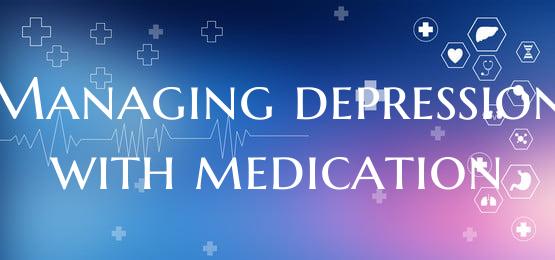
Managing depression with medication
Introduction: Depression is a common mental health disorder that can significantly impact a person's quality of life. While therapy and lifestyle changes are essential components of depression treatment, medication can also play a crucial role in managing the symptoms of depression. In this article, we will explore how medication can help individuals cope with depression and improve their overall well-being.
1. Understanding Depression Medications: There are several types of medications commonly used to treat depression, including selective serotonin reuptake inhibitors (SSRIs), serotonin-norepinephrine reuptake inhibitors (SNRIs), tricyclic antidepressants, and atypical antidepressants. These medications work by altering neurotransmitter levels in the brain to regulate mood and alleviate symptoms of depression.
2. Effectiveness of Depression Medications: Research has shown that medication can be highly effective in treating depression, especially for individuals with moderate to severe symptoms. Medication can help stabilize mood, reduce feelings of sadness and hopelessness, improve sleep patterns, and enhance overall functioning. However, it is essential to work closely with a healthcare provider to find the right medication and dosage that works best for each individual.
3. Side Effects and Considerations: Like all medications, antidepressants can come with side effects such as nausea, weight gain, sexual dysfunction, and drowsiness. It is crucial to discuss potential side effects with a healthcare provider and monitor any changes in symptoms or reactions to the medication. Additionally, some medications may take several weeks to start working, so patience and consistency in taking the medication as prescribed are essential.
4. Importance of Monitoring and Follow-Up: Regular monitoring and follow-up appointments with a healthcare provider are crucial when taking medication for depression. This allows for adjustments to be made to the treatment plan if needed and ensures that the medication is working effectively. Open communication with a healthcare provider about how the medication is affecting symptoms and overall well-being is key to successful management of depression.
5. Complementary Therapies and Self-Care: While medication can be a valuable tool in managing depression, it is essential to complement it with other therapies and self-care practices. Engaging in talk therapy, practicing mindfulness and relaxation techniques, maintaining a healthy lifestyle with regular exercise and proper nutrition, and building a strong support system are all important components of a comprehensive treatment plan for depression.
Conclusion: Medication can be a powerful tool in managing depression and alleviating symptoms that can be debilitating for individuals. By working closely with a healthcare provider to find the right medication and dosage, monitoring for side effects, and incorporating complementary therapies and self-care practices, individuals can effectively manage their depression and improve their overall quality of life. Remember that seeking help and being proactive in managing depression is a critical step towards healing and recovery.